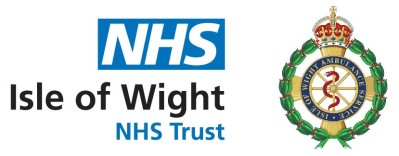This information is for overseas visitors coming to our Trust.
The NHS is a state-funded organisation which provides free hospital treatment to people who are legally living in the UK on a permanent basis. If you are not ordinarily resident in the UK, you may have to pay for your hospital treatment, even if you have a British passport, or have paid National Insurance contributions and taxes in this country in the past.
Overseas visitors who need healthcare while in the United Kingdom may not be entitled to free healthcare from the National Health Service.
The Department of Health charging regulations places a legal obligation on NHS Trusts to establish whether a person is an overseas visitor to whom charges apply, or whether they are exempt from charges.
To carry out these assessments we have a dedicated overseas visitors team who specialise in assessing patients to establish whether they are liable for charges or if an exemption applies. This may involve asking the patient to provide documents to prove or support entitlement. Patients who are assessed as not entitled to free care will be required to pay for their treatment and be asked to make an upfront payment.
It is the responsibility of the patient to provide evidence, when requested, to demonstrate that they are entitled to free NHS treatment. When evidence is not provided, treatment will be charged for.
EU Citizens to apply to the settlement scheme
All EU, EEA, and Swiss citizens, and their family members, who were resident in the UK by 31 December 2020, should apply without delay to the EU Settlement Scheme to continue to work, study, and access free healthcare and benefits in the UK after 30 June 2021.
An application must be made for every eligible child within a family. Parents should check if they need to apply to the EU Settlement Scheme for their children, even if they have already applied and been granted a status themselves.
If an EU, EEA, or Swiss citizen, and their family members have lived in the UK for many years, or have a permanent residence document or EEA Biometric Residence Card BRP, they still need to apply to the EU Settlement Scheme or have applied for British citizenship by 30 June 2021 to secure their existing rights in the UK.
Irish citizens and those with indefinite leave do not need to apply but may do so if they wish.
You can find all the necessary information on the GOV.UK website: https://
EU Regulations/European health insurance card (EHIC)
If you are travelling from a European country to the UK you will need to show a valid EHIC or Provisional Replacement Certificate, otherwise you will have to pay for your care directly.
You will also be asked to provide the following:
- a copy of your passport
- your full address abroad
The EHIC must be produced or a provisional replacement certificate prior to discharge from the hospital or prior to an outpatient appointment, or you will be liable to pay all fees associated with your care and claim your care back through your home country.
The EU Regulations apply to all countries within the European Economic Area, which is made up of the member states of the EU:
Austria, Belgium, Bulgaria, Croatia, Cyprus Southern, Czech Republic, Denmark, Estonia, Finland, France, Germany, Greece, Hungary, Ireland, Italy, Latvia, Lithuania, Luxembourg, Malta, Netherlands, Poland, Portugal, Romania, Slovakia, Slovenia, Spain, Sweden, plus Iceland, Liechtenstein, and Switzerland.
Please note that your EHIC does not apply if you are having elective planned treatment. You will need to obtain an E112/S2 from your local Health Authority in your country of origin prior to an appointment being given in the UK. In the event of elective planned treatment being provided prior to receipt of an E112/S2, you will be charged for your treatment.
Patients from countries with reciprocal or bilateral arrangements with the UK for healthcare
The UK has reciprocal healthcare agreements with the following non-EU countries:
Anguilla, Australia, Bosnia and Herzegovina, British Virgin Islands, Falkland Islands, Faroe Islands, Gibraltar, Israel, Kosovo, Montenegro, Montserrat, New Zealand, North Macedonia, Serbia, St Helena, Turks and Caicos Islands.
The UK also has reciprocal healthcare agreements with the UK’s Crown Dependencies Guernsey, Jersey and the Isle of Man
The new reciprocal healthcare arrangements with Guernsey came into effect on 1 January 2023, the revised reciprocal healthcare arrangements with Jersey came into effect on 25/05/2023 and the revised reciprocal healthcare arrangements with the Isle of Man came into effect July 2023
Overseas visitors who can present evidence that they are nationals, citizens or lawful residents of one of these countries may be treated as exempt from charges in respect of treatment that the relevant agreement entitles them to. Generally, only immediate medical treatment is to be provided free of charge, to allow the overseas visitor to return home for other needs. Also, the agreements do not usually apply when the person has travelled to the UK for the purpose of obtaining healthcare.
Assessment of eligibility under reciprocal or bilateral arrangements can be complex so please contact the Overseas team for advice.
Please note that reciprocal and bilateral agreements do not apply if you are having elective planned treatment or treatment that can be carried out in your country of origin.
Insurance
If you are liable for the charges associated with your care, you may choose to use your travel insurance or health insurance to fund your care. If you have insurance cover, it is your responsibility to contact the company to gain a ‘letter of guarantee’ and authorisation numbers from your insurers authorising your treatment.
Consequences of non-payment
You should be aware that under paragraphs 320 22 and 322 12, and 3.14 of Appendix V, of the Immigration Rules a person with outstanding debts of over £500 for NHS treatment that is not paid within two months of invoicing, may be denied a further immigration application to enter or remain in the UK.
In the absence of prompt full settlement or a reasonable repayment schedule, non-clinical information relating to this debt is provided routinely to the Home Office and may be used by the Home Office to apply the above Immigration Rules. The information will remain active for the purpose of the above rules until the debt is settled and a record of the settled debt will also be retained, both subject to normal limitation periods.
In the event that you may seek entry to the UK or make an advance immigration application after settling an NHS debt in the previous two months, you are advised to retain and carry evidence of payment for potential examination by Home Office officials.



